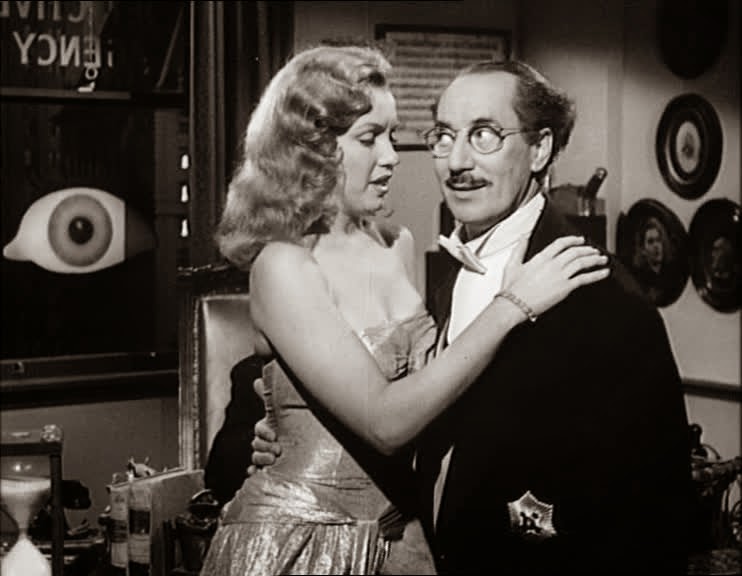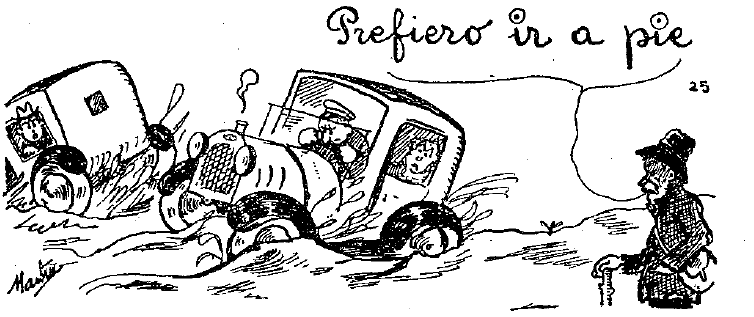
| Языки :: Испанский |
| Аудио |


 |
|
 |
 |
|
73 |
Español |
Spanish |
|
Lección Veinticinco (25) |
||
| ¿Qué me aconseja usted? | What do you advise me (to do)? | |
| 1 |
El barrio de la Puerta del Sol es céntrico, me explica doña Amelia, pero viejo, con calles estrechas, |
The district of the. P. d. S. is central, doña Am. explains to me, but old, with narrow streets, |
| 2 |
muy concurridas y muy ruidosas. No me gustaría vivir en el (1). |
much crowded and very noisy. It would not please me to live in it. |
| 3 | El barrio de Pardiñas es mas tranquilo y está a dos pasos del Parque del Retiro (2). | The P. district is more peaceful, and is within short distance [at two paces] from the R. Park. |
| 4 | ¿Está muy lejos del centre? | Is it far from the centre? |
| 5 |
Se va a la Puerta del Sol en un cuarto de hora a pie y en el tranvía o en el Metro, en unos minutos. |
One goes to the P. d. S. in a quarter of an hour on foot, and by [in the] tram or tube, in a few minutes. |
| 6 | ¿Me aconseja usted que pruebe la pensión del anuncio? | Do you advise me to [that I] try the boarding-house of the ad.? |
| 7 | ¿Lleva usted mucho equipaje (3) ? | Have you [do you carry] much luggage? |
| 8 |
Estas dos maletas, y un baúl que va facturado. ¿Por qué? ¿Son los cuartos tan pequeños? |
These 2 suit-cases and a trunk which is [goes] registered. Why? Are the rooms so small? |
| 9 | No es eso. Pero si no le gusta, puede usted mudar de pensión sin demasiada molestia (4). | It is not that. But if it does not please you, you can change without too much inconvenience. |
| 10 |
Siento no poder recomendar las pensiones de mi casa : sé que se come mal en ellas; |
I regret not to be able to recommend the boarding-houses in my block;
I know that the board is very bad [they eat very badly in it]. |
| 11 |
pienso que quizá esta nueva pensión será mejor : « Cántaro nuevo hace buen agua (5). » |
I think that perhaps this new boarding-house will be better
: |
| EJERCICIOS | EXERCISE : | |
| 1 | Haga el favor, ¿está la estación lejos de aquí? | Please, is the station far from here? |
| 2 | Está cerca; a unos minutos en el tranvía; tome usted el ocho. | It's near; [at] a few minutes by [in the] tram; take the 8. |
| 3 | Prefiero ir a pie; ¿me puede decir (or : puede usted decirme) por donde se va? |
I prefer to go on foot; can you tell me what way [by where] one goes? |
| 4 | Todo derecho hasta la Plaza, y después a la derecha. | Straight on [all st.] to the square; and then on the right. |
| 5 | Muchas gracias. - De nada; no puede usted equivocarse. |
Thank you very much. - It's all right [of nothing]. You cannot be mistaken. |
| 6 | ¿Le llevo a usted la maleta, señor? | I carry your [his (H. V)] suitcase, sir? |
| 7 |
No, gracias. - Estoy sin trabajo, señor, no he comido hoy. |
No, thank you. - I am out of [without] work, sir, I have not eaten to-day. |
| 8 | - Bueno; llévela. |
Well; carry it. |
| NOTES. | |
| 1 |
El ruido : the noise. - El takes an accent when a pronoun; same pronunciation. See less. 28, par. 3. |
| 2 |
Note the use of es and está :
the latter implies place. - El retiro : the retreat. |
| 3 |
Llevar is not only to carry, but to have about oneself. El equipaje (sing.) : the luggage. |
| 4 | Demasiado (hard s) varies in the fem. and plural, like mucho and poco. |
| 5 |
A Spanish proverb meaning : all that is new looks better. Buena loses its a, by euphony, before the stressed a in agua. In " una buena amiga, a good (lady-) friend, the a of buena remains because the a of amiga is not stressed. - For pienso, siento, see less. 28, par. 4. |
|
Llévela : In the imperative, as in the infinitive
and present participle, |
